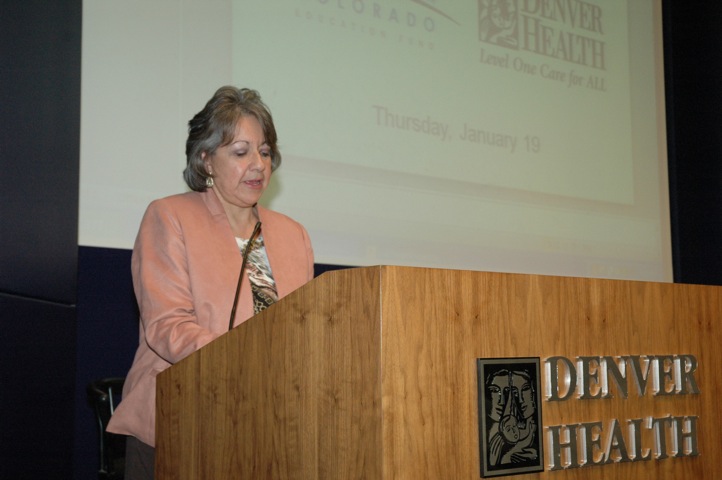
Ed. Note: Cross-posted from the HealthCare.gov blog.
All of us hope and expect to be provided care and treated well by the health care professionals we rely on every day to keep us healthy. Unfortunately, far too often, lesbian, gay, bisexual and transgender (LGBT) Americans are denied care or treated discriminatorily simply because of their sexual orientation or gender identity.
Last week, I had the opportunity to host a Conversation on LGBT Health in Denver, Colorado, in partnership with the One Colorado Education Fund. One Colorado recently completed a comprehensive study to discover and document the state of LGBT health and wellness in Colorado. The study surveyed nearly 1,300 LGBT Coloradans who shared their personal health care stories and experiences.
One participant stated, “A lot of people might not come out to their doctor because it’s very scary. You don’t know how people will react.” Another respondent stated, “You can’t be healthy if you have to hide who you are. Or if you think you have to hide who you are because you don’t know if it’s safe.”
According to the study:
- 21 percent of the LGBT respondents and 53 percent of the transgender community were refused care by doctors or other health workers
- 27 percent of transgender respondents do not have health insurance
- 74 percent of respondents reported a lack of or limited health insurance
- 83 percent of transgender respondents reported healthcare expenses to be a barrier to seeking services
But thanks to the Affordable Care Act, the new health reform law passed by Congress and signed into law by President Obama, starting in 2014, it will be illegal for insurance companies to deny access to anyone who is seeking health insurance. Through expansions in coverage, and new consumer protections in the Patient’s Bill of Rights, consumers will have more control over their health care decisions. But we know we can do more.
We have made great strides in recent years in understanding that LGBT Americans face real and significant health disparities. We also know that it is possible to begin addressing these disparities. It will require continued recognition, research, and access to resources -- specific attention from health care providers and public health professionals committed to advancing LGBT health.
The Obama Administration has made LGBT health and well-being a priority. For example, last year, following the direction of the President, the Department of Health and Human Services (HHS) released new rules requiring all hospitals receiving Medicare or Medicaid funds to allow individuals to choose who can visit them in the hospital, including same-sex partners. And last year, Secretary Sebelius committed to working across HHS to improve the health and well-being of all LGBT Americans.
This is just the beginning of what can be accomplished with the hard work and dedication of our community partners, like One Colorado Education Fund. Although we know there is much work still to be done, I am proud to work with so many talented people who wish to continue to improve the lives of all Americans, including LGBT individuals and families.
Marguerite Salazar is Regional Director, Region VIII, for the U.S. Department of Health and Human Services.


